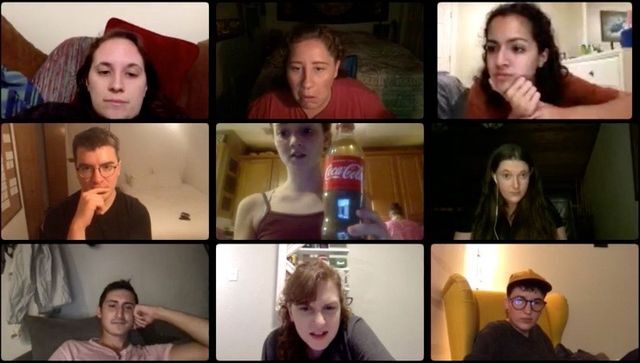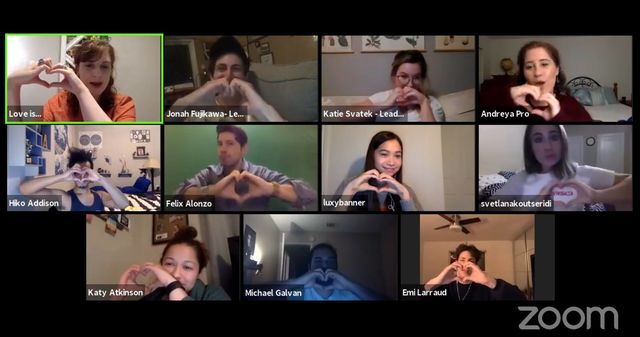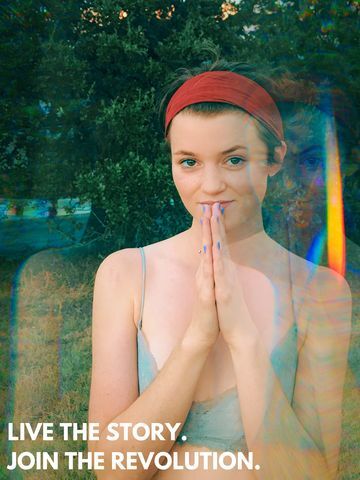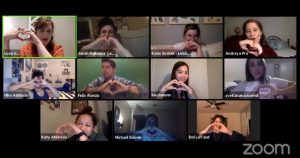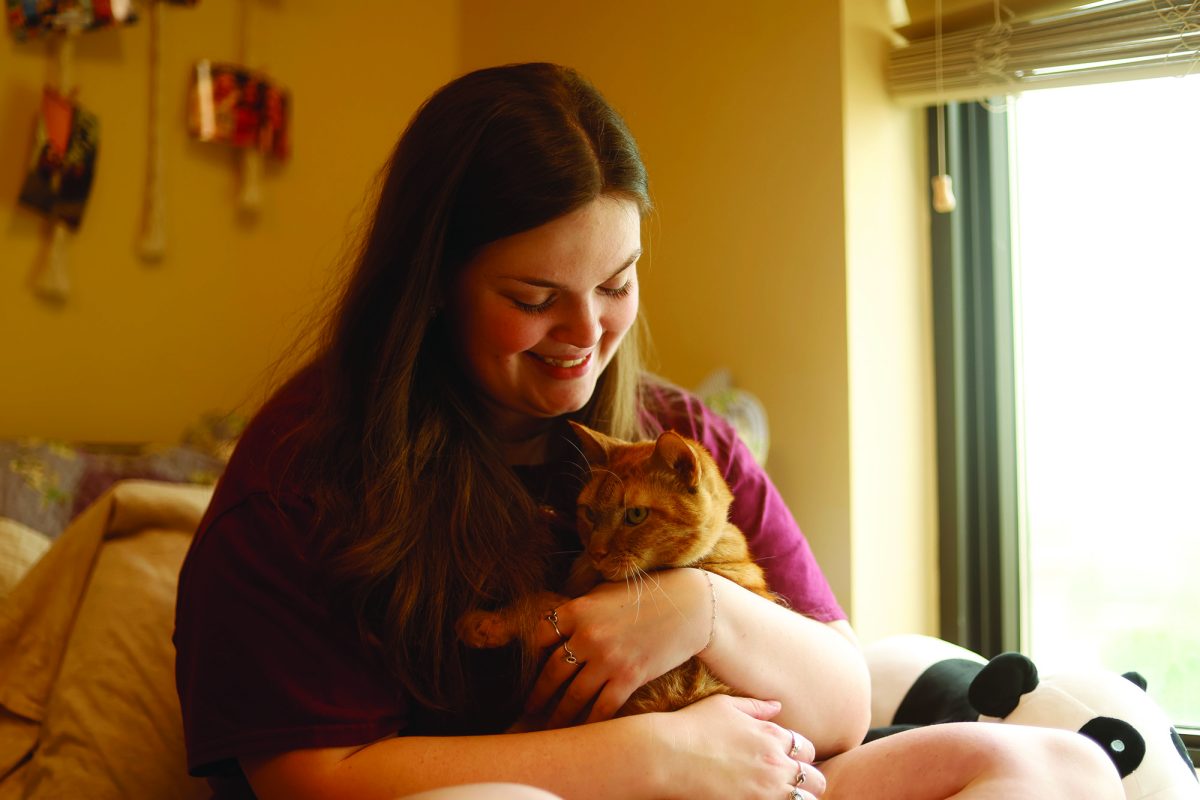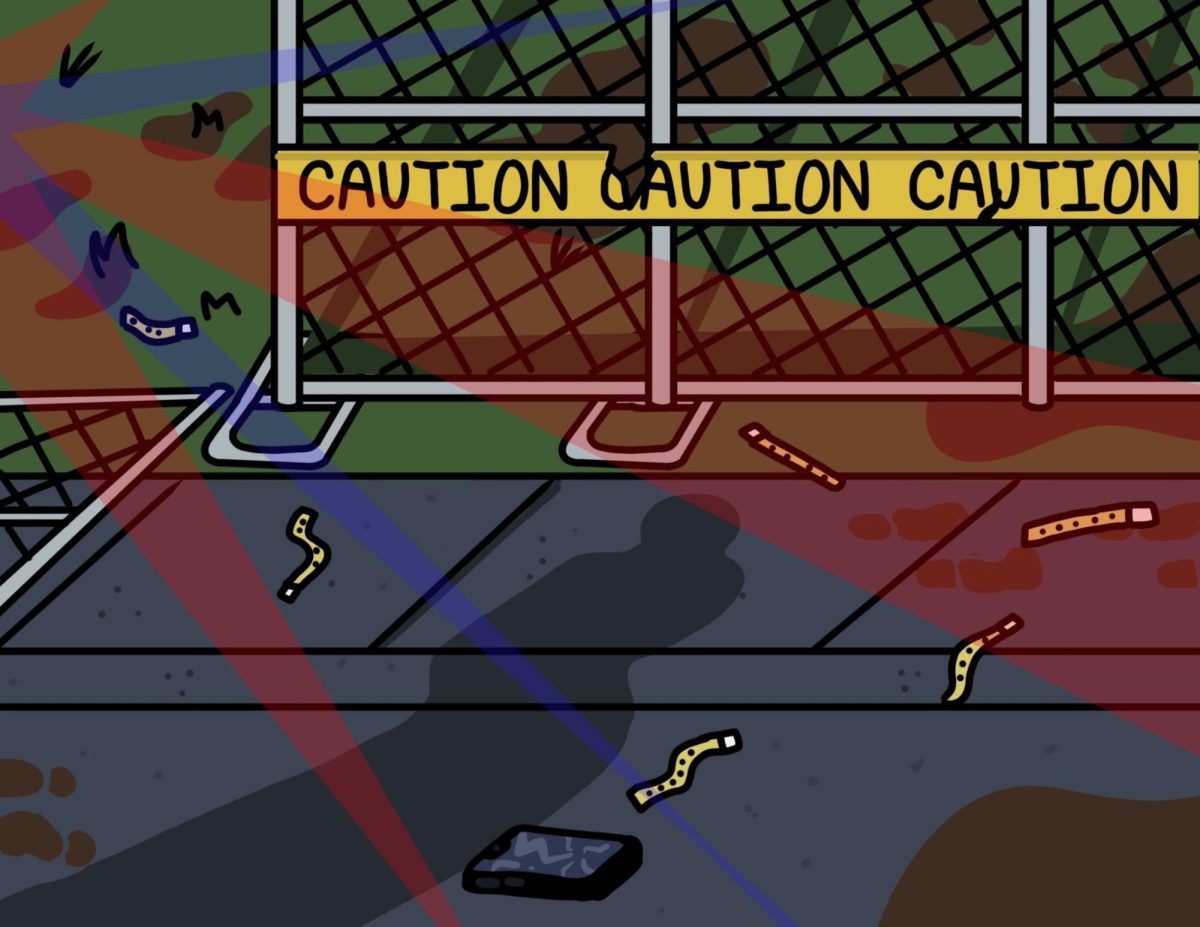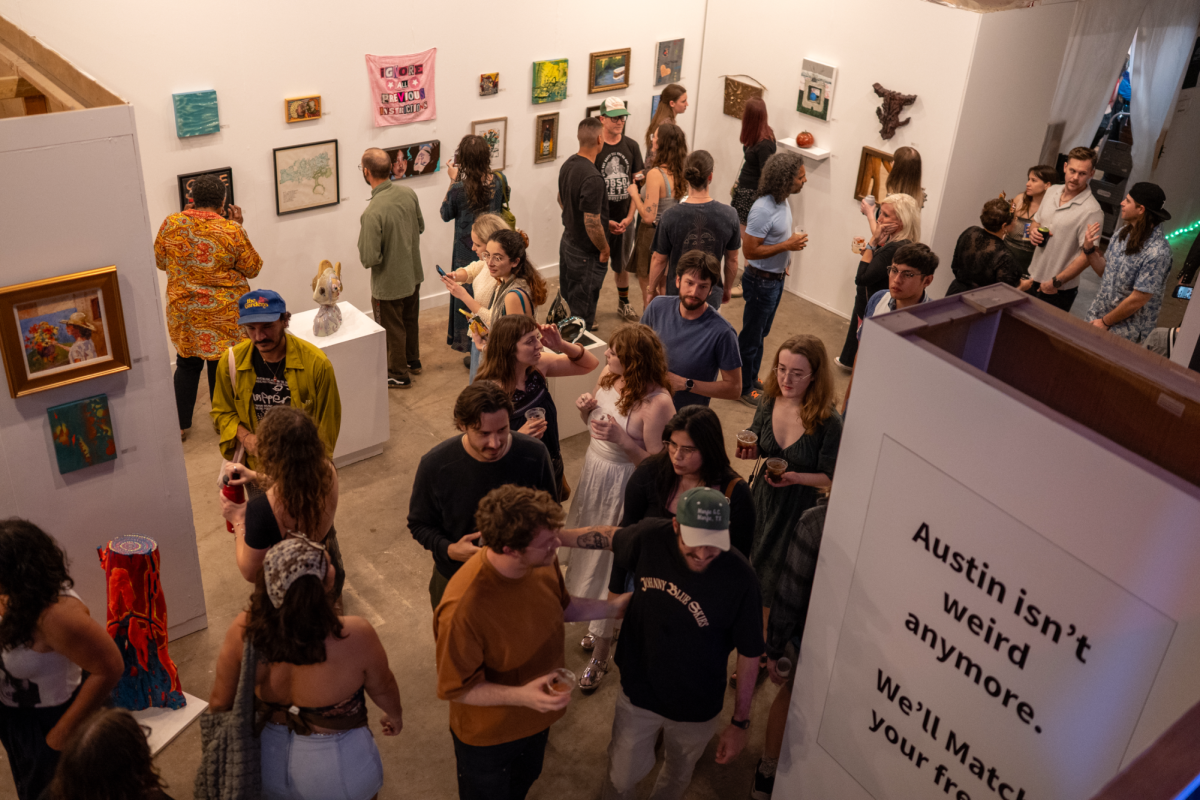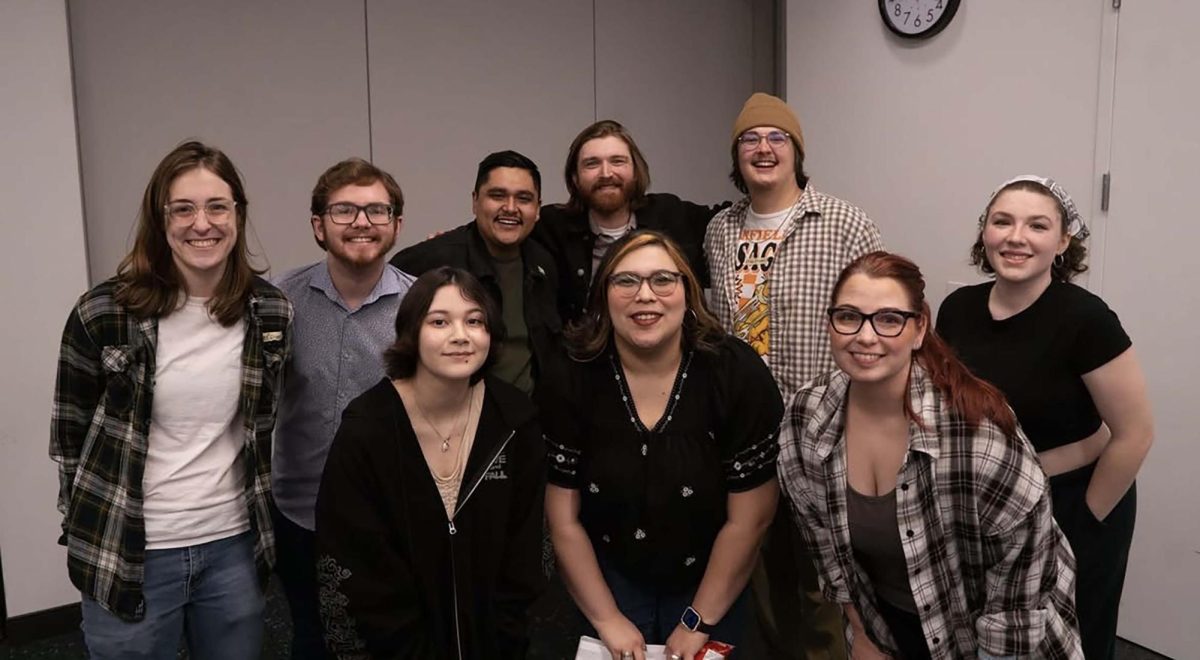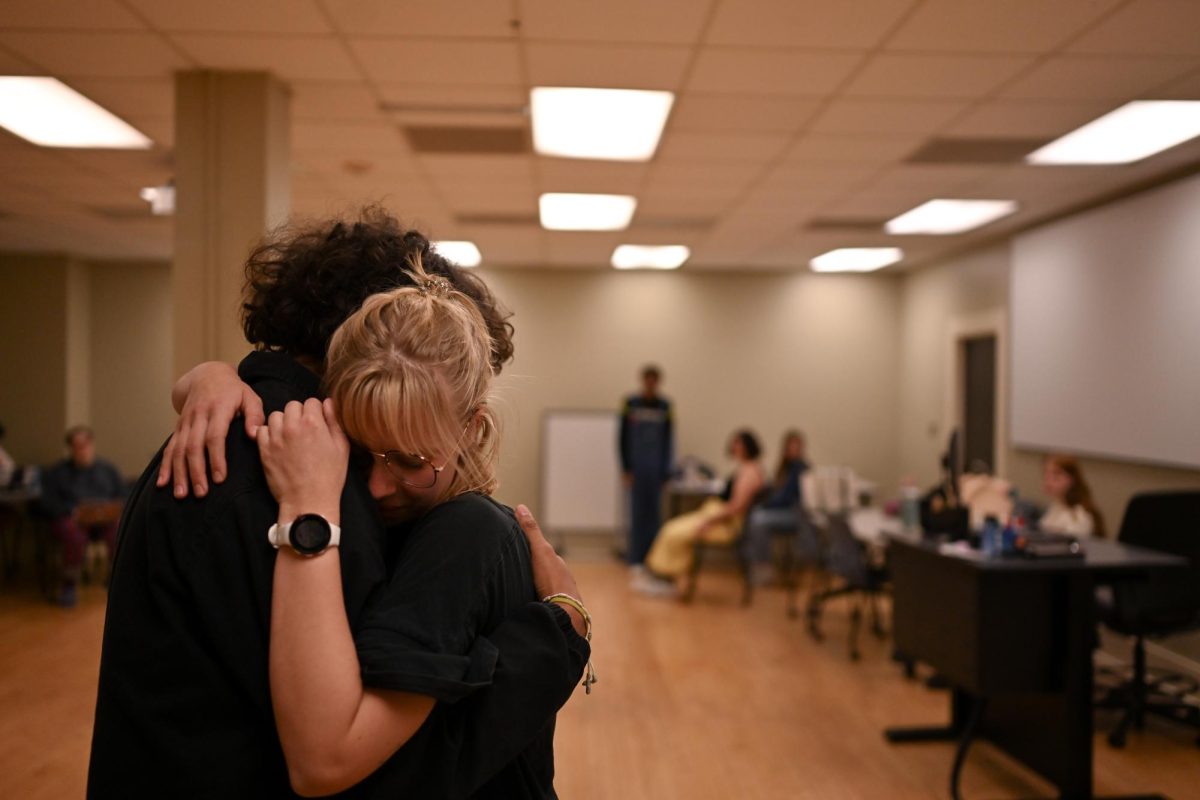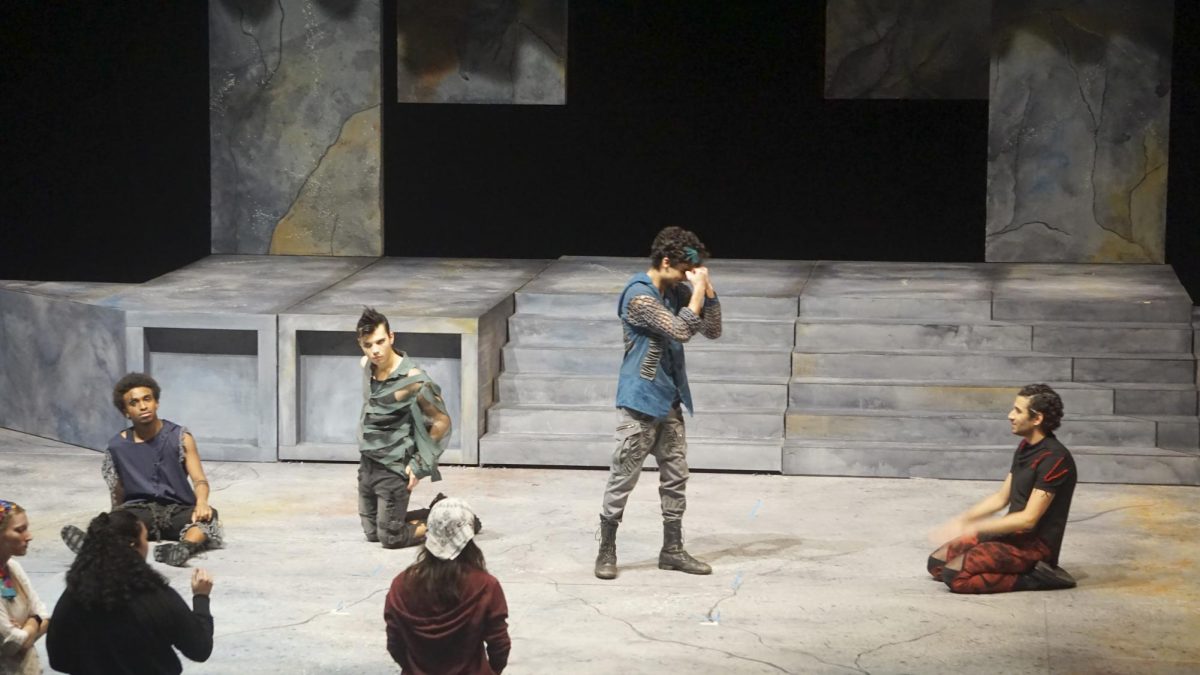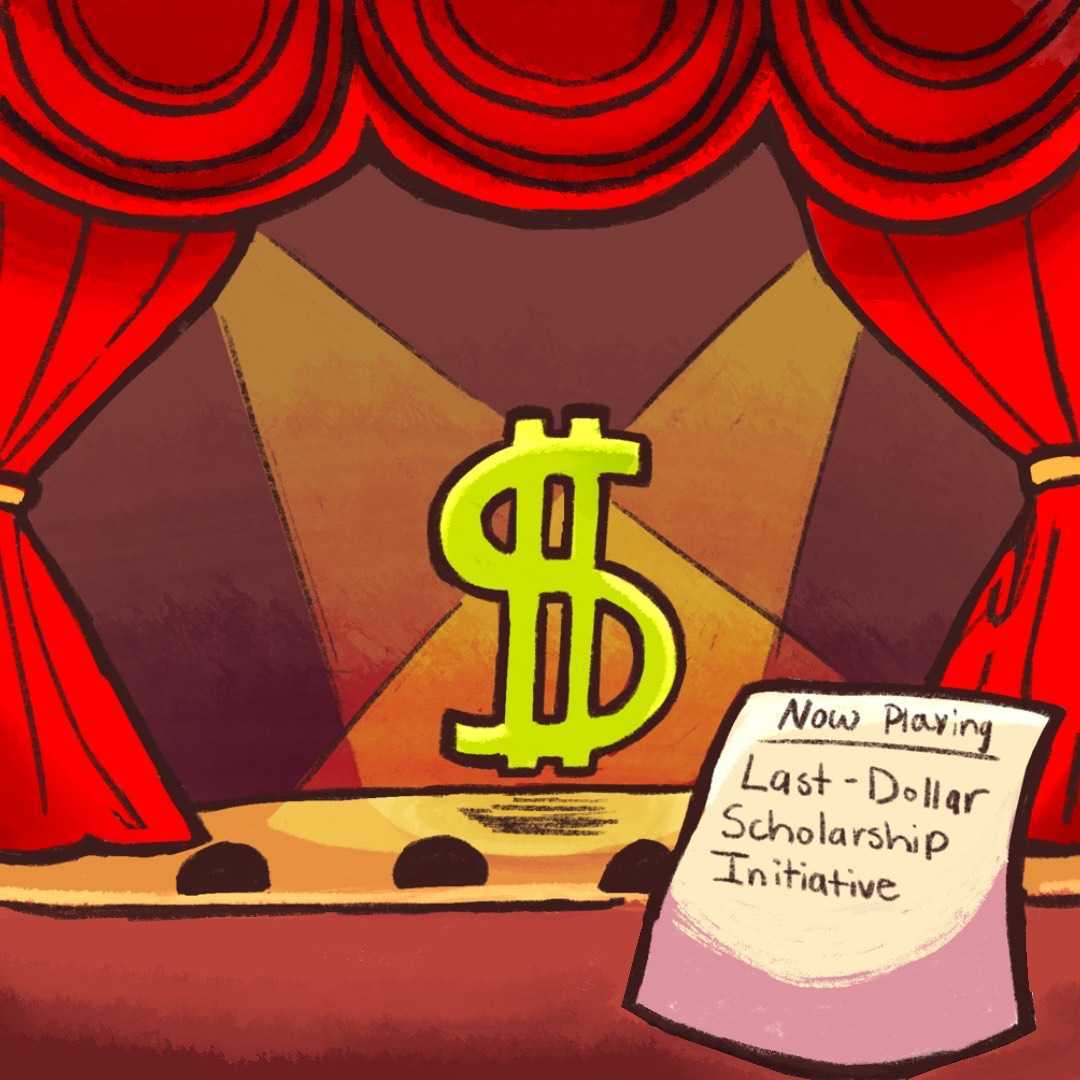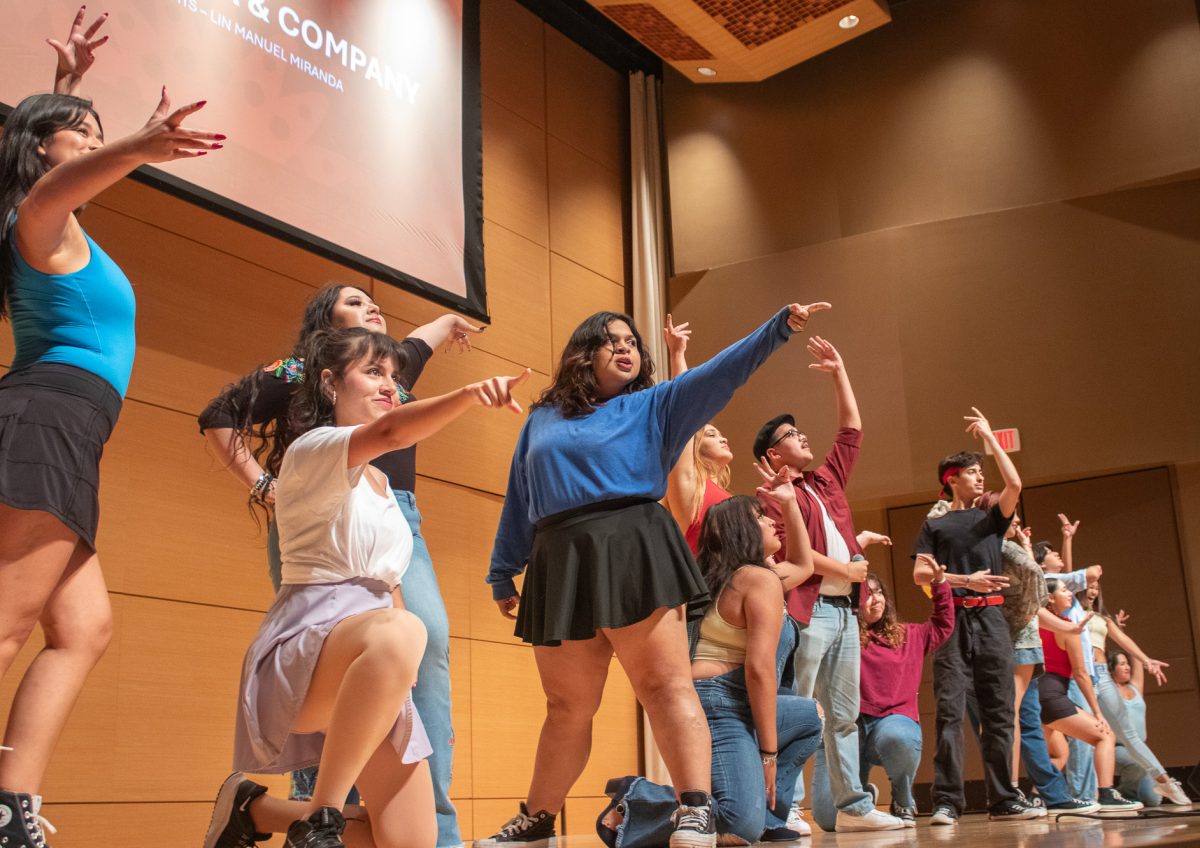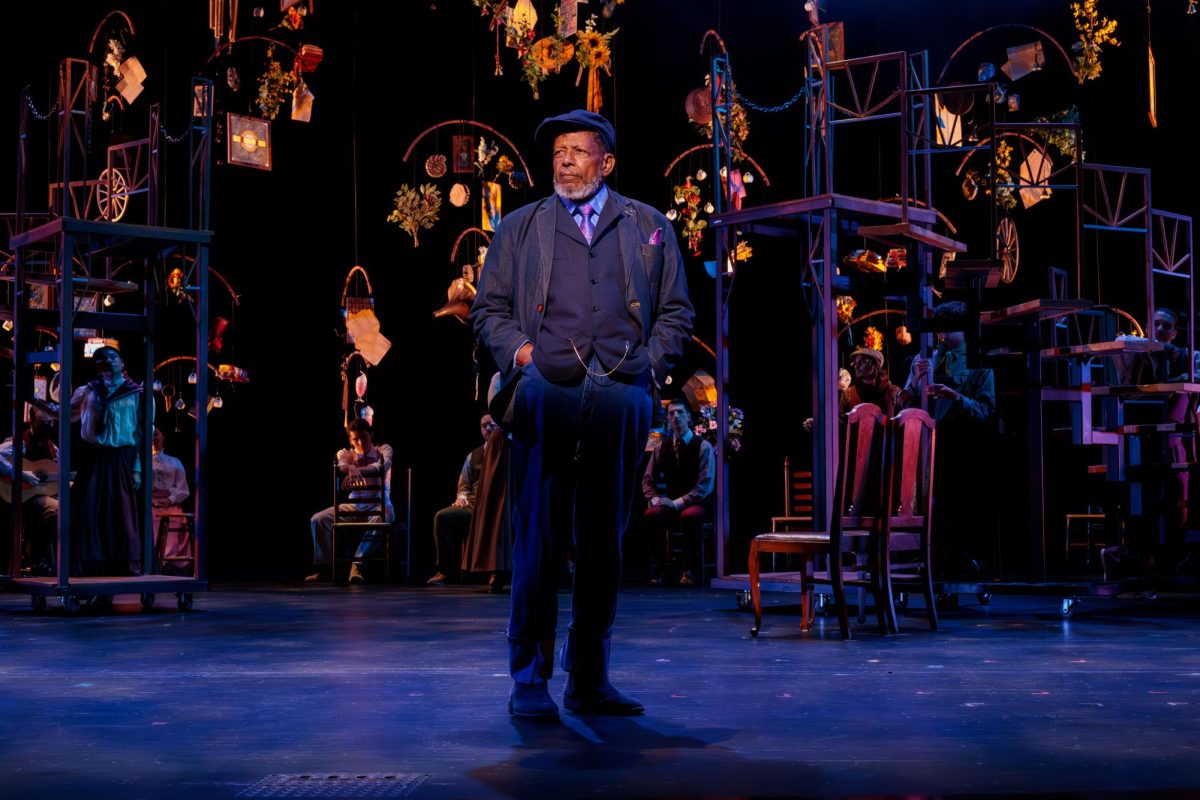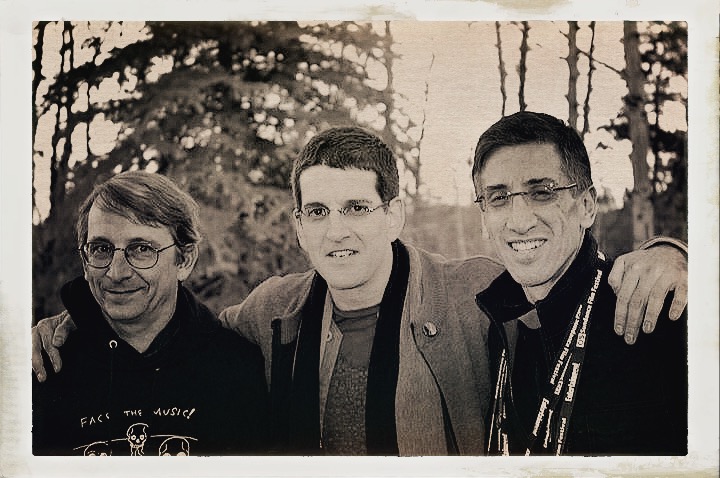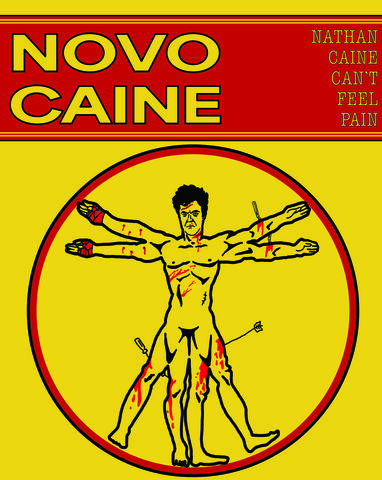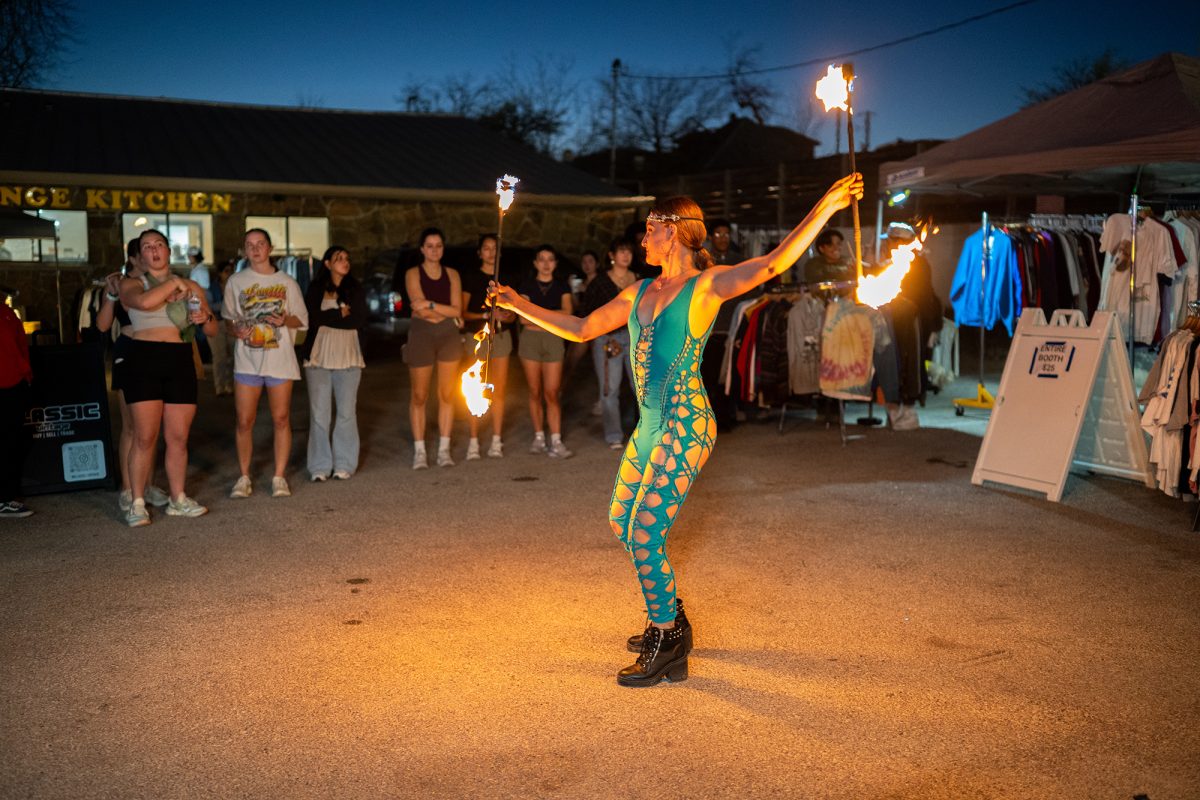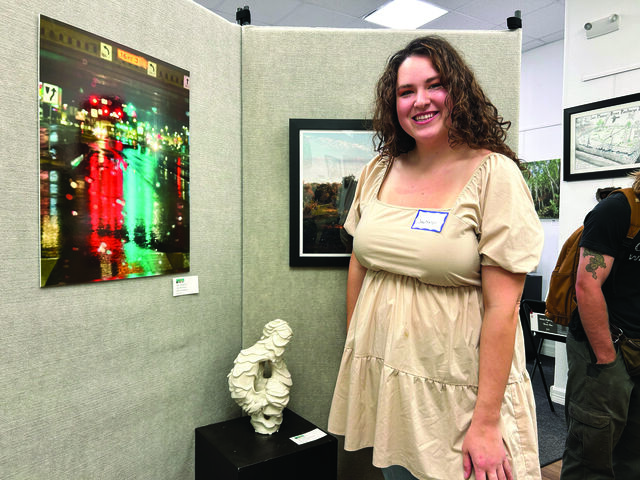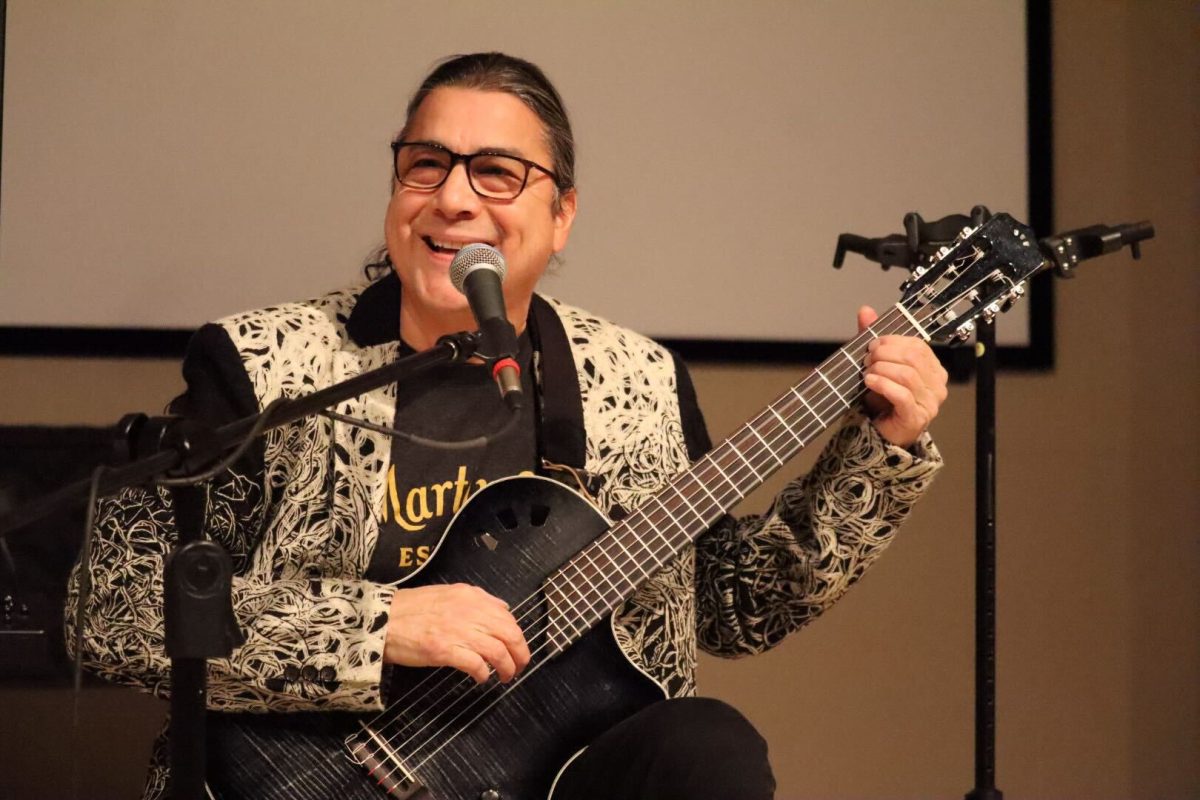As tumbleweeds rolled down LBJ Drive and students sat in their homes for the latter half of the 2020 spring semester, alumna Allison Price, a directing graduate, looked for a way to continue her creative journey in a new reality.
Her first step was turning to fellow alumnus Gary Thornsberry, a scenic designer graduate, and alumnus Jonah Fujikawa, a performance and production graduate, to co-found their new theater company, Less Than Three.
“We have been wanting to start a theater company in our own personal dreams for like, ever,” Price said to them. “So, why don’t we just do it?”
The rapid lockdown events in late March sparked the trio into action. Thornsberry and Price had previously worked together on campus productions such as “Rosencrantz and Guildenstern are Dead” and ”Daddy Long Legs”, which allowed them to establish a strong friendship and creative partnership.
Within a week, the team crafted a mission statement aiming at disrupting current theatrical practices through immersive artistic experiences.
“Theater needs to be non-hierarchical,” Price said. “We don’t like people feeling like they don’t have a voice in the room, so, in our spaces, everyone has equal say over everything; we all collaborate on everything.”
In its most recent production, “The Conspiracy Play”, Less Than Three puts this non-hierarchical theater-making into practice through a process that allowed actors, writers, directors, the marketing team and dramaturg the space to contribute.
One of the actors, Ashlyn Maddox, a musical theater alumna, had never worked on such a devised piece of theater before.
“When I auditioned for this [play], there was a script,” Maddox said. “There was a 300-page script with every scenario we could possibly take. We didn’t even finish reading through it.”
Instead, writer Katie Svatek, a performance and production alumna with a concentration in dramatic writing, shifted toward creating a map for the show, which detailed and connected each scenario with a possible outcome. Every show is a different experience, relying on the audience to drive the action toward a conclusion.
The play’s opening night performance on Oct. 23 began with an audience roll call, led by actor Olivia Tovar as the character Problematic Patriot. As audience members signed on the video call, they were asked to turn their cameras on and join the cast on-screen. Audience members and the four characters introduced themselves, establishing every screen as a member of the show.
“At the core of theater is a certain level of audience interaction,” Svatek said. “The level of it being live, of having people watching, that’s at the core of what theater is.”
The audience for this production, however, did more than just watch. Throughout the 75-minute production, they used a private Facebook messenger group to expose one of the conspiracy theorists for lying about their theories to earn a profit.
“My concept of truth has changed working on this play,” Maddox said. “I hope audiences see the validity of people’s truths and also where we can have empathy in areas you may lack understanding or knowledge.”
Learning about various conspiracies in this show brought a marginalized group of characters out from the shadows, a form of advocacy that Less Than Three’s team values most of all and plans to continue in future productions.
“I think there are very few plays that need to be 100% white anymore,” Svatek said. “It’s not an accurate representation of people and of stories, and theater is a representation of people and stories.”
Less Than Three’s team pulls from a number of different stories within its own community made up of people from wide-reaching backgrounds, including professional actors, those with larping experience, researchers, people from different areas and individuals in all stages of life.
Through establishing this diverse dynamic, Price was able to recreate the open and exploratory environment she cultivated on-campus in classes with professor Ana Martinez and graduate teaching assistant Katie Brand.
“Ana and Katie created a really nice room where theater could be anything,” Price said. “I never felt boxed into any way of thinking. As long as you could explain what was going on in your head, you were good to go.”
This open way of thinking is what has led Price, Thornsberry, Fujikawa and Svatek’s collaboration to start their own company, even in the middle of a pandemic.
“Collaboration was the main thing I learned in college,” Price said. “Collaborate, collaborate, collaborate, collaborate. Work with people, and meet people where they’re at.”
The next project the company has planned is its most collaborative yet, where it’ll explore an interactive, virtual escape room called “Hive Mind.”
“We’re all trying to explore the question, ‘what is considered theater’,” Svatek said. “We’re trying to expand the definition a little bit, specifically because of social distancing practices that are now in place.”
Due to these practices, all the company’s productions have taken place online, yet the possibilities for theatrical productions have grown even more accessible to those who prefer to cuddle up in blankets than dress up for the theater.
“To me, the definition of theater is imagination and expressing,” Price said. “So if there’s imagination involved and you’re expressing, you’re doing theater.”
For tickets to upcoming shows and more information about Less Than Three visit its website.
Categories:
Born in a pandemic: Alumni-founded company redefines theater
Payton Russell, Life and Arts Contributor
October 28, 2020
Alumni Kayla Hildebrand, Allison Price, Ashlyn Maddox and Jonah Fujikawa along with other cast members rehearse virtually for Less Than Three’s most recent production, “The Conspiracy Play”.
0
Donate to The University Star
Your donation will support the student journalists of Texas State University. Your contribution will allow us to purchase equipment and cover our annual website hosting costs.
More to Discover



